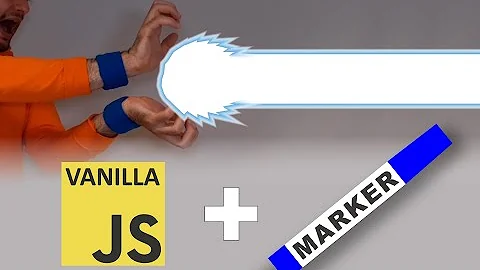Failed to construct 'AudioContext': number of hardware contexts reached maximum
Solution 1
AudioContext.close() will release the hardware of the context, but check that it is available only for recent versions of chrome and firefox. Not available for IE aparently. Check the documentation: https://developer.mozilla.org/en-US/docs/Web/API/AudioContext/close
Solution 2
You should really only have one AudioContext in the page.
From the docs: "In most use cases, only a single AudioContext is used per document."
I can't really think of a reason why you'd ever need more than one. Is there a specific issue you've run into that caused you to create multiple contexts?
Solution 3
Reference it to a variable i.e:
var myAudioCtx = new AudioContext();
Then destroy by calling
myAudioCtx.close();
That's it.
Solution 4
I was working on a media player widget which broke on Chrome (but not Firefox) as soon as more than five were embedded in a single page.
I discovered that you can create a single AudioContext and store it globally, then have each instance just use the shared AudioContext. It seems to work no differently - you can attach multiple buffers and multiple destinations and the audio all gets mixed together.
This might require more effort if you're using it for timing, but for playback of one or more audio streams generated on-the-fly with JS code, sharing a single AudioContext works fine.
Related videos on Youtube
Ian Hunter
Updated on June 05, 2022Comments
-
Ian Hunter about 2 years
Is there a way to remove an
AudioContextafter I've created it?var analyzers = []; var contexts = []; try { for(var i = 0; i<20; i++) { contexts[i] = new AudioContext(); analyzers[i] = contexts[i].createAnalyser(); } }catch(e) { console.log(e); // too many contexts created -- how do I remove them? }I've tried this, but it doesn't let me create new contexts after the fact:
analyzers.forEach(function(analyzer){analyzer.disconnect(analyzer.context.destination)})I am using Chrome 36 on Ubuntu Linux 14.04.
-
Ian Hunter almost 10 years
Is there a specific issue you've run into that caused you to create multiple contexts?— no, not really. I just assumed that because I could make multiple AudioContexts, there wouldn't be any issue. Until I reached 6, which is apparently as many as my hardware can handle. I can rework it so there's just one. Is there no way to destroy an instance of an AudioContext, though? -
 Kevin Ennis almost 10 yearsNo, there's no way to destroy an
Kevin Ennis almost 10 yearsNo, there's no way to destroy anAudioContext. It's possible that they can be garbage collected if nothing else contains a reference to them, but I'm not really sure if that's the case. -
Ian Hunter almost 10 yearsI've tried setting my references to the contexts to
null, but it didn't seem to release the count of contexts that was causing that error. Maybe a bug? Or I missed something. Either way, keeping only oneAudioContext(so far) has fixed my problem. Thank you for your help. -
notthetup almost 10 yearsAlso in most common use cases you want all your Nodes running in the same context, so that you can synchronize them if the need be. As for forcing GC of the AudioConext, you can't really know when it will get GCed. So setting it to null ensure it gets GCed at some point in time, but you never know exactly when.
-
samccone over 9 yearsA use case @KevinEnnis is when you are using timed value transitions such as osc.detune.setValueAtTime(...) and you do not want to keep track of the current context's time.
-
 Kevin Ennis over 9 yearsI guess I don't really understand what you mean. I'd have to see some code to contrast the approach you'd use with a single context vs the way you want to do it using multiple contexts.
Kevin Ennis over 9 yearsI guess I don't really understand what you mean. I'd have to see some code to contrast the approach you'd use with a single context vs the way you want to do it using multiple contexts. -
Moonwalker over 8 yearsyou got it right Julian! I started calling close() on the audio context instance created in my React component when component was getting unmounted and that resolved the AudioContext creation error. Thank...
-
Nek over 7 yearsKeep in mind that total number of audio contexts is per browser instance, not per window. You can get out of luck if some other opened site/sites has/have already depleted the available pool. No real workaround but you should at least wrap audio context initialisation into try/catch and have some UI for error scenario.
-
Nek over 7 yearsThere is also AudioContext.suspend(). I needed this feature so much around 4 years ago. Glad to see the improvements though.
-
Simone Mazzoni over 7 years@Julian Is there a way to check how many audioContext are opened in a page? Or do I have to keep track of them manually?
-
 Jack G over 7 yearsThis should be the answer. Julian is the real MVP.
Jack G over 7 yearsThis should be the answer. Julian is the real MVP. -
Malvineous over 6 years@KevinEnnis: To answer your question about why you'd need multiple contexts, I am working on a media player widget and as soon as someone embeds more than five widgets on a page they stop working (think of a list of album tracks with an audio preview next to each one.)
-
 Kevin Ennis over 6 yearsWhy not namespace your AudioContext for re-use? So, like,
Kevin Ennis over 6 yearsWhy not namespace your AudioContext for re-use? So, like,window.reusableAudioContextForMyMediaPlayer. When you instantiate a player, you look for that. If it exists, use it. Otherwise create it. -
 weiya ou over 3 yearsDon't close it too fast, otherwise it will not play in time. setTimeout(() => { context.close();}, 400);
weiya ou over 3 yearsDon't close it too fast, otherwise it will not play in time. setTimeout(() => { context.close();}, 400); -
 Brad over 3 yearsA good reason for having a new audio context is for changing sample rates. If we're capturing from an audio device, we need to match its sample rate. If we change the device, the sample rate can change.
Brad over 3 yearsA good reason for having a new audio context is for changing sample rates. If we're capturing from an audio device, we need to match its sample rate. If we change the device, the sample rate can change.








